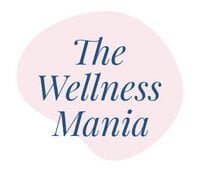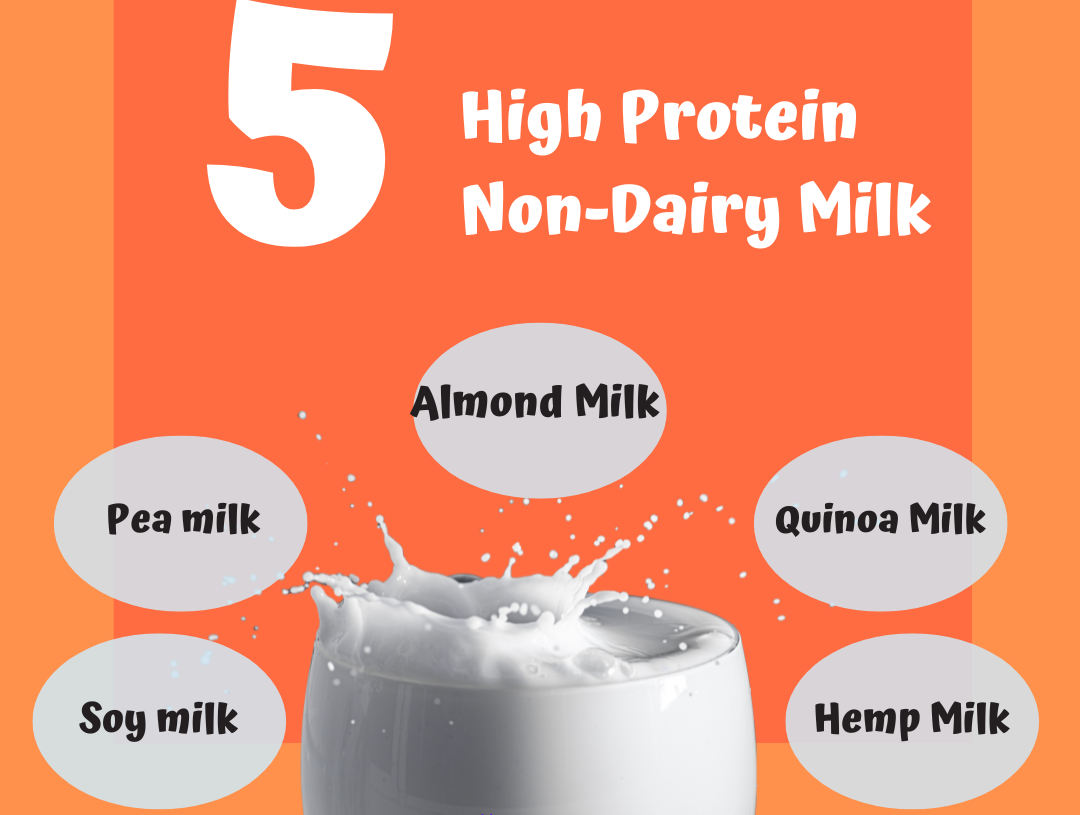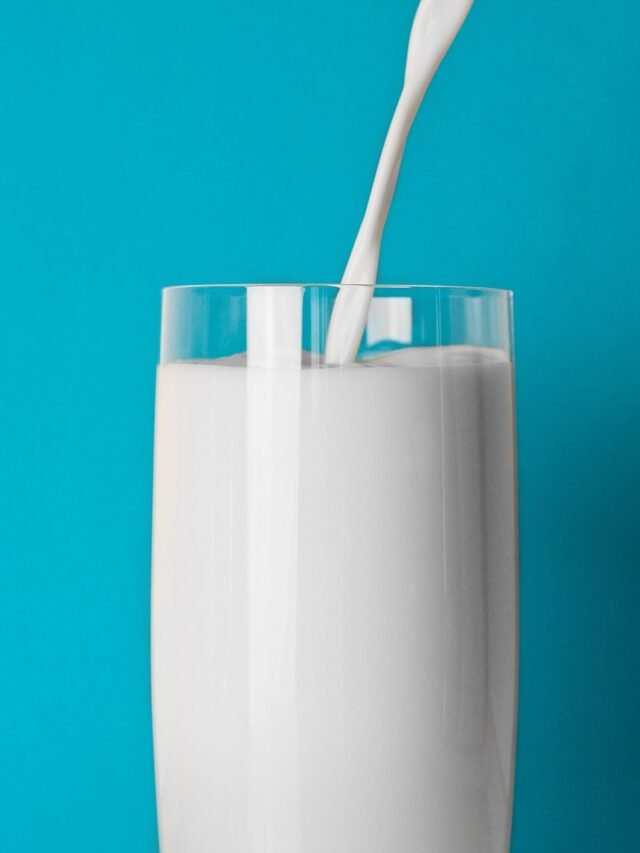What is non-dairy milk?
Non-dairy milks are beverages made from plant sources such as almonds, soy, oats, and peas that are a high protein non-dairy milk option for vegan diets. These milk options are more suitable for people, such as:
- Individuals on vegan diets
- Individuals with lactose-intolerance
- Individuals who want to reduce their dairy intake
These are untraditional choices suitable for vegans, having a high protein content without dairy.
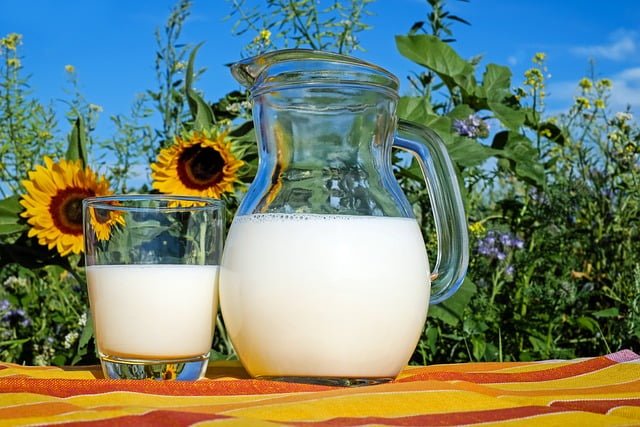
Visit website: Click here!
Why choose non-dairy milk?
Today, people are more likely to favor high protein non-dairy milk sources for many reasons.
- Some people can’t take cow’s milk due to lactose intolerance, as it causes issues with digestion.
- Different environmental aspects are significantly figured out, such as how carbon footprints can be decreased by using plant-based milk.
- To cater to different dietary needs and nutritional profiles, these high protein non-dairy milk options are very suitable.

Rise of High Protein Non-Dairy Milk
- The Growing Demand for Plant-Based Proteins
People in large numbers are adopting plant-based diets and are now aware of the protein requirements of their bodies. Both aspects are increasing the demand for high protein non-diary food products. High protein non-dairy milk is the best option to fulfill this demand with a high protein content. By adopting this trend, we ultimately move toward healthy and sustainable living.
- Health Benefits of High Protein Non-Dairy Milk
High protein non-dairy milk suggests several health advantages, as it helps to repair and build muscles. So, this is a suitable choice for active and athletic-related people. Different body functions are performed with the help of essential amino acids that are present in excess in non-dairy milks. These non-dairy milks are fortified with other minerals and vitamins, adding to the extra nutritional value of these high protein non-dairy milk options.
- Environmental Impact of Non-Dairy Milk Production
It is easier to get non-dairy milk than traditional dairy based on animal faming. By using these products, many advantages, such as a lower water requirement, a lower land requirement, and decreased greenhouse gas emissions, can be achieved. The high protein non-dairy milk helps promote healthy choices and eco-friendly practices for overall well-being.

Visit website: Click here!
Types of High Protein Non-Dairy Milk
- Soy Milk
Nutritional Profile of Soy Milk
One of the important sources of vegan-based milk is soybean, which is most popular and widely available. It provides a high protein content, around 7-8 g/cup. It also has enough concentrations of vitamin D, vitamin B12, and calcium. Soy milk is fortified to add extra supplementation for body requirements.
Benefits of Soy Milk
Soy milk has almost nine essential amino acids that make it a high protein non-dairy milk. So, it provides the best option for those individuals who want to avoid animal products but maintain their protein requirements. It also helps to improve cardiac health by decreasing cholesterol levels in the blood.
Potential Allergies and Considerations
It is important to know about food allergies before making any changes to your diet, as this would be the only point of consideration for dietary changes. Some people have allergies to soy. So, always consult health care professionals before adding soy milk to your diet.

- Pea Milk
Nutritional Profile of Pea Milk
It is a quiet new product of non-dairy milk but is gaining popularity due to its high content of protein and its countless benefits to the body. One normal glass serving of pea milk has 8 grams of protein. It is also enriched with iron, omega-3 fatty acids, and calcium.
Benefits of Pea Milk
Pea milk has more resemblance to dairy milk because of its creamy texture. Due to its resemblance, it gained more popularity and acceptance for vegan diets. It also has hypoallergenic properties, making it a suitable choice for those who have soy or nut allergies.
Popular Brands of Pea Milk
A brand named “Ripple” is famous for pea milk. This brand produces pea milk with a variety of flavors and formulations. They prepare unsweetened pea milk and flavors such as chocolate and vanilla according to different taste choices.

Visit website: Click here!
3. Almond Milk (Fortified)
How almond milk can be high in protein?
Almond milk is traditionally low in protein content, so most almond milk brands prepare it with fortification. Rice and peas are used to enhance the protein content of almond milk. After fortification, it contains almost 5–10 g of protein per serving, which makes it competitive with other high protein non-dairy milk options.
Benefits and Considerations of Almond Milk
Almond milk can be prepared in a variety of flavors and recipes. Most of it contains healthy fats and low calories, which makes it the best choice for those who are concerned about their weight. If a person wants to increase their protein intake, then those brands should be selected that fortify almond milk with protein.
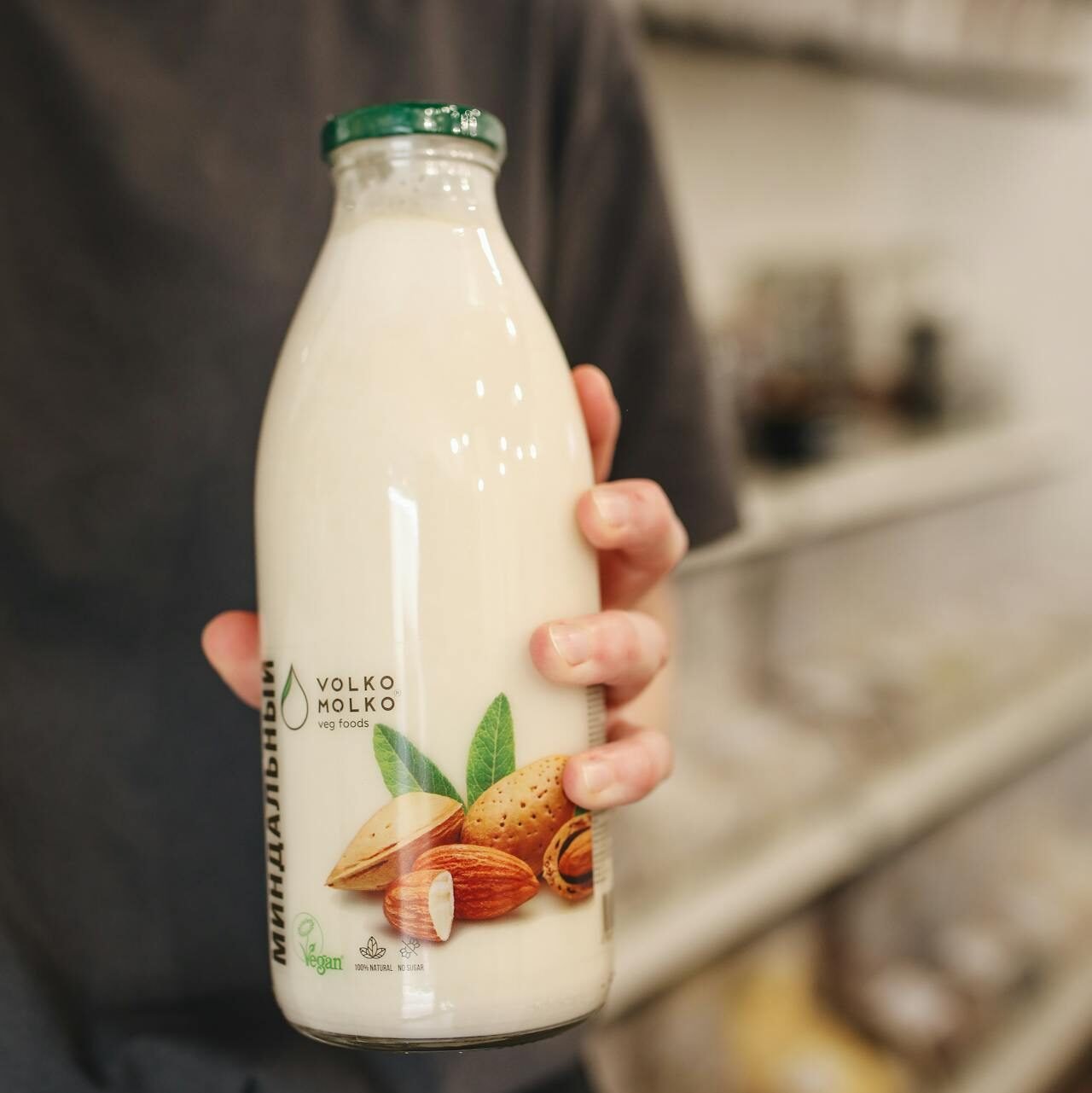
Other Emerging High Protein Non-Dairy Milk
4. Hemp Milk
There is another vegan choice of non-dairy milk produced from hemp seeds that is gaining attention due to its highest nutritional benefits. It has high content of protein having around 3g protein per serving. It is also enriched with omega-3 and omega-6 fatty acids.
5. Quinoa Milk
Quinoa milk is not a very common choice of high protein non-dairy milk and is quite a new one as well. It has a good amount of protein and an essential amount of nine amino acids. It is also enriched in fiber, which is good for gut health as it improves digestion.

Visit website: Click here!
How do you incorporate high protein non-dairy milk into your diet?
Using Non-Dairy Milk in Smoothies
Smoothies are the best option to incorporate high protein non-dairy milk options into your diet.
- To prepare breakfast, use pea milk along with spinach, peanut butter, chia seeds, and bananas.
- If you have more physical activity and exercise, then use a soymilk smoothie for post-workout recovery. Add Greek yogurt, frozen berries, and a small scoop of protein powder (plant-based) along with soy milk and blend all the ingredients to get the best vegan.
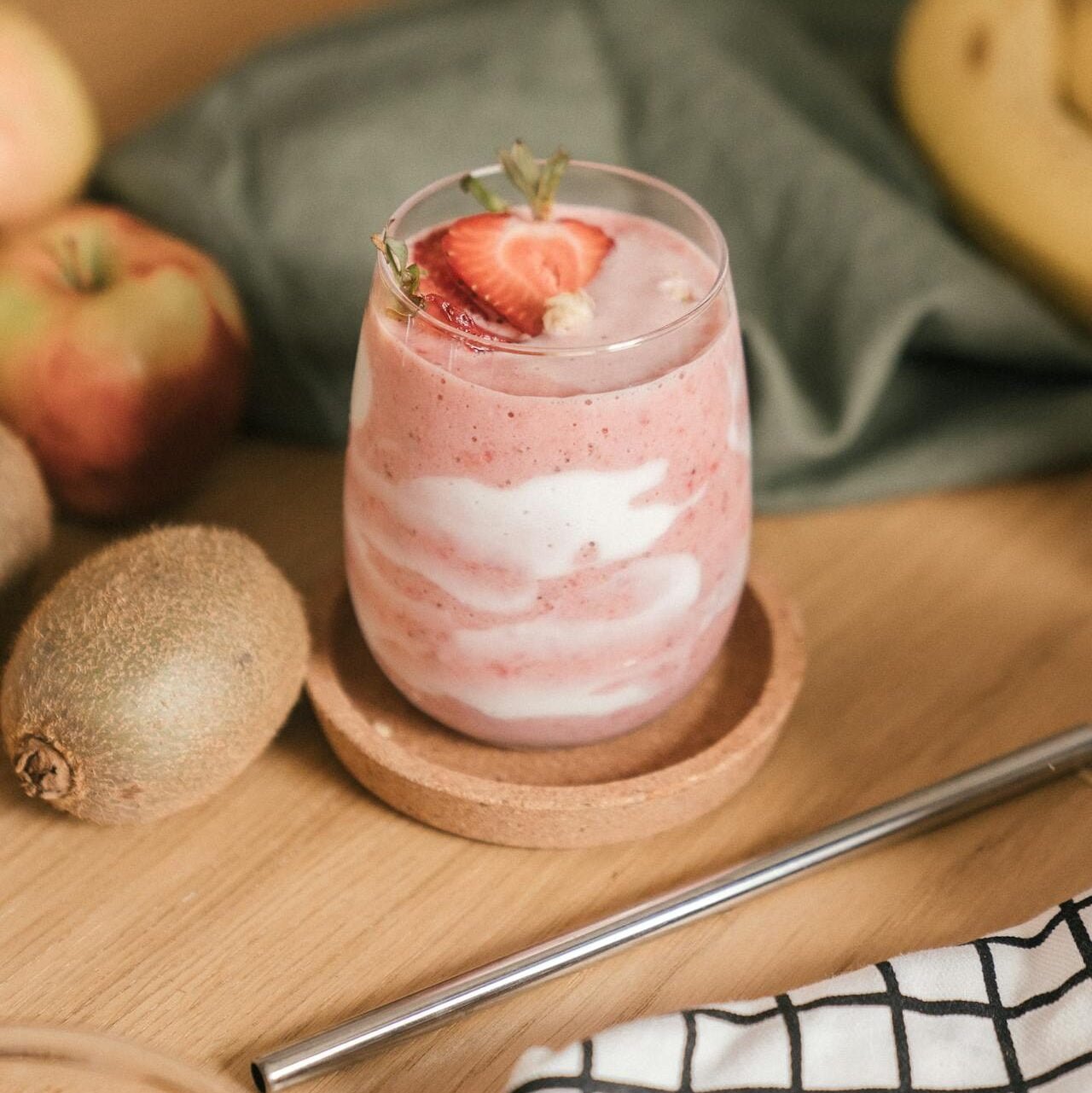
Baking and Cooking with Non-Dairy Milk
In baking and cooking, non-dairy milk can be replaced with dairy milk in all recipes. If you must bake, then almond and soy milk give the best natural flavors as dairy milk, and if you are preparing savory dishes like sauces and creamy soups, then pea milk would be a good substitute due to its creamy texture like dairy milk.
Visit website: Click here!
Conclusion
High protein non-dairy milk is a versatile, vegan, nutritious, and eco-friendly substitute for natural dairy milk. It is the best option for lactose-intolerant people, vegans, and people who prefer plant-based foods. Different plant-based non-dairy milk products include soy milk, pea milk, almond milk, quinoa milk, and hemp milk. Their nutritional value can be improved through fortification. There are many brands available for these no-dairy milk options that make non-dairy milks in a variety of flavors and formulations. You can find it for yourself according to taste and nutritional requirements.
FAQs
Is high protein, non-dairy milk appropriate for children?
High protein non-dairy milk is suitable for children of growing age, but always make the choice of fortified milk for them. Minerals such as calcium and vitamin D fortification, along with protein, are the best choices for children. It is important to consult with a pediatrician when you have to make changes to a child’s diet.
Can I use high protein, non-dairy milk in coffee?
Non-dairy milks can be used in coffee, especially soy and pea milk, as these provide the natural flavor and texture of dairy milk and meet the protein requirements of the body.
Which high protein, non-dairy milk is suitable for weight loss?
Non-dairy milks are good options for weight loss, especially soy and almond milk, as these are low in calories. So, due to its high protein content, a person feels full without taking too many calories, which results in reduced weight.
How long does non-dairy milk last after opening?
Non-dairy milk, once opened, must be used within 7–10 days and stored in the refrigerator. Every pack has specific instructions regarding storage, so try to follow the instructions.
Can high protein non-dairy milk help build muscle?
Non-dairy milk is helpful to build muscle if it is taken with a balanced diet and the required proteins. Pea and soy milk are the best choices, as muscle building requires high protein content.
